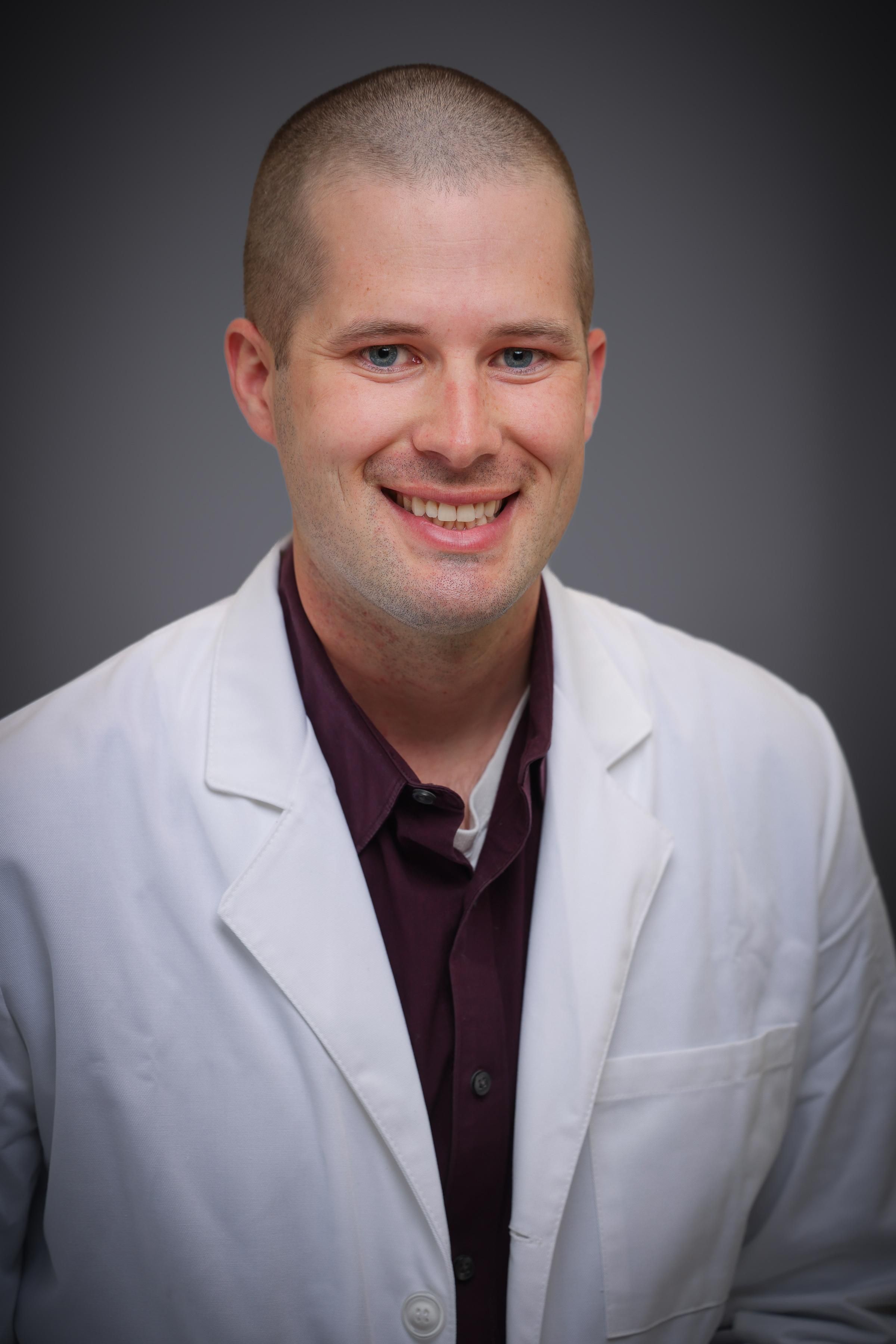
Michael
Rauschenbach
Positions
- Senior Assistant Resident, Med-Psych
- House Staff
Basics
Hometown
Saint Louis, MO
College/University
Yale University
Medical School
Washington University in St. Louis School of Medicine
Advanced Degrees
PhD, Philosophy, University of Notre Dame
What are your career goals?
Clinically, I am interested in integrated care for patients with serious mental illness, neuropsychiatry, and global health. I also have academic interests in philosophy generally, and medical ethics and the philosophy of psychiatry, in particular.
Reflections on the Duke Program
What were you looking for in a residency program?
I wanted to care for a large and diverse patient population in an academic medical center that provided excellent clinical training but also offered distinctive additional opportunities for engaging in research and scholarship, in an environment that my wife and our dog Marley would enjoy living in.
What are the strengths of the Duke Program?
Duke has a long commitment to integrated internal medicine-psychiatry training, a culture that encourages graduates of the program to stick around after graduating and to invest in continuing to improve the training environment for future trainees, and unparalleled opportunities in some of the areas that I am especially interested in, like the philosophy of psychiatry, religion in medicine, and neuropsychiatry.
What are your observations about the relationships between faculty and house staff?
Thus far, faculty have largely been approachable, willing to teach, and interested in engaging house staff as colleagues. Complex patients are discussed very openly, and the intuitions of senior residents are taken especially seriously by attendings. There has been a good balance of trusting residents but also stepping in to make important modifications to ensure that patients get the best care that I really appreciate, and that I think facilitates confidence building among residents while also modeling the value of faculty experience and expertise.
Tell us about your co-residents. What has helped you connect, support each other, and form friendships?
My co-residents are bright, warm, funny, and very hard-working, and those I've spoken with most all tend to have both a general love for the work of medicine, as well as a specific passion within it that is both admirable and easy to be inspired to learn from.
About Life in Durham
What is the best thing about living in Durham and the Triangle?
There's a lot to love about Durham in particular and the Triangle in general, starting with the fact that folks from various stages of my life have all wanted to visit (and I've only been here a few months). The food is hard to beat, the running trails are great for my wife, and the sheer breadth of opportunities for outdoor exploration, within a short drive, is pretty terrific. More personally, I've found that nearby cities within the Virginia-DC-Baltimore corridor are surprisingly accessible for short trips, and that I've been able to see more people than I expected to be able to keep in close touch with during the first few months of residency. But really it's the food!
How does the Triangle appeal to people of diverse backgrounds?
The Triangle is a region with a rich history that is also growing incredibly quickly, in related but distinct areas, and attracting lots of new folks to the area. The confluence of old Durham and new startup culture isn't always entirely smooth, but there are tons of opportunities for people of different backgrounds to enjoy themselves. Since coming here I've gone hiking numerous times, watched a college basketball Final Four game featuring two teams from the area, gone $2 lanes bowling, watched fireworks on the lawn of DPAC, and I haven't even been to either the mountains or the beach yet! Within the hospital itself, the mix of backgrounds among the patients, the other care teams, and especially among the residents is really generative, and I think contributes to a deep sense of mission as grounded in serving the whole community, as much as we can, rather than a subset of it.
Where did you choose to live and why?
My wife and I chose to live in Duke Forest, just a few miles away from the hospital, primarily because of the combination of natural beauty and proximity to the hospital, as well as the fact that our rental is within walking distance of La Vaquita, truly one of my favorite places in Durham! The housing and rental markets in the Triangle are pretty crazy right now, and so finding a good place takes a bit of effort, but so far we're enjoying it, and our dog seems happy as well, which is really the most important thing.
What advice would you give to someone looking to move to Durham?
I'd first recommend talking to a mix of folks about where the best places are to live, because there is a lot going on in Durham outside of the new crush of high rise apartments downtown and along 9th street (many of which are great, to be fair). But there are lots of old neighborhoods, or neat finds within newer neighborhoods, worth exploring if you can devote the time to looking around.
What are your interests outside of medicine?
I spend a lot of time with my wife and our dog, but I also enjoy college basketball, reading fiction and philosophy, hosting wine tastings, exploring new restaurants, and checking out new state parks.